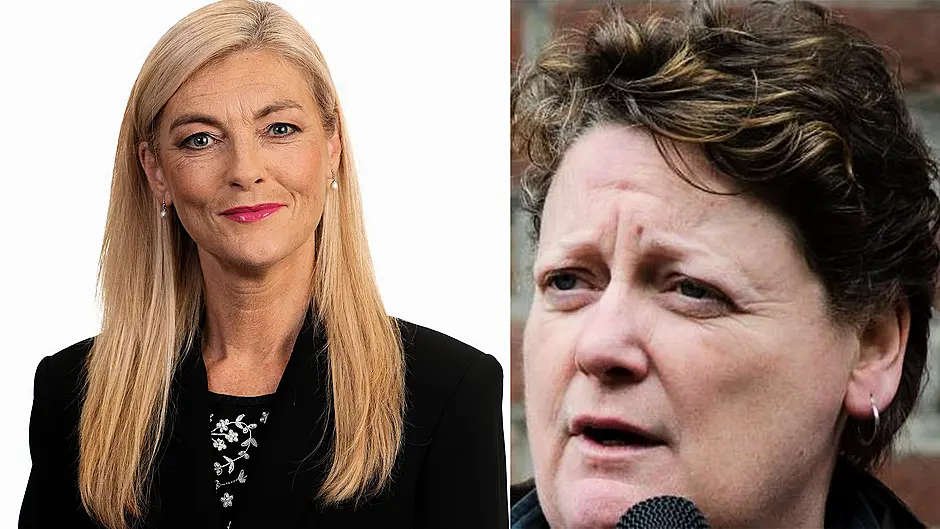MEP and former barrister says judges need training on coercive control
THE reporting of domestic violence in West Cork is on the rise but the number of court orders granted to people in need of protection is only at the half-way mark.
Ireland South MEP Cynthia Ní Mhurchú and Marie Mulholland, the ceo of West Cork Beacon, have both analysed district court statistics, which were recently released under the Freedom of Information Act.
The total number of people who applied for a domestic violence order in Cork county in 2023 was 2,338 – a figure that is up 15% on the previous year. Both women have raised concerns about the growing number of applications, including in areas such as Clonakilty which recorded a 90% increase in applications – up from 48 to 91.
Bandon was also listed amongst the West Cork towns with the highest number of applications. Bandon’s 81 applications represent an increase of 19%.
The figures for Bantry, where the West Cork Beacon service is based, show a year-on-year increase, according to the MEP, and the 30 applications correspond with a 36% increase. Skibbereen was one of only three district courts in Cork to record a decrease in domestic violence order applications in the same period – a drop of 17%, from 36 to 30.
Macroom district court recorded a 33% increase in applications for domestic violence orders, with the number jumping from 60 in 2022 to 80 in 2023.
Of the 80 applications made in Macroom, only 38 were granted. Similarly, in Clonakilty, just 47% of the orders were granted – namely 43 out of the 91 applications made.
Skibbereen differed – not only by having a decrease in applications, but by also having 63% of the orders granted, which is 10% above the county average. Overall, West Cork does have a higher grant rate for domestic violence orders than others, but with the county average at 54%, last year, the MEP said questions still need to be asked.
They said the figures show that more in-depth research is needed to find out what is happening for vulnerable women in the district court system in West Cork.
The MEP, a former family law barrister, has called on Justice Minister Jim O’Callaghan to appoint more district court judges to deal specifically with family law cases.
She also specified the need for more consultation rooms for victims at the district court, as well as ongoing training for district and circuit court judges in areas such as domestic violence, coercive control and violence against women.
Marie Mulholland is of the opinion that some progress has been made, especially in areas where domestic violence support services are available.
‘Campaigns in the media, media coverage and the work of domestic violence services have all contributed in helping to de-stigmatise the issue and give women the confidence to come forward to seek advice and protection,’ she said. However, she said, the statistics showing that barely 50% of protection orders are granted is ‘evidence that our courts system has changed very little in their understanding and response to victims seeking protection from domestic abuse.
‘Many judges need training on the dynamics of domestic violence and specifically on coercive control. There are too many judges whose understanding of domestic violence is about physical violence only,’ she said. ‘They fail to recognise the extent of psychological control, financial abuse and emotional dismemberment of the victim by her abuser.
‘Having legislation outlawing coercive control in Ireland is something we should be proud of, but it is of no use if our courts do not understand the profound impact it has on its victims and how it is exercised by perpetrators,’ she added. The ceo of West Cork Beacon said her staff spend a significant amount of time in courts providing accompaniment to women seeking protections and so much of their time and the victim’s is taken up with constant adjournments.
‘This has a devastating effect on women victims with, nothing to show for their days of anxiety waiting for their application to be heard, and having to return home-empty handed with no formal protection available,’ she said.
‘The adjournment problem is very much a symptom of the logjam in the courts system nationally and regionally,’ she added.
According to Ms Mulholland, there is one practice, above all, that contributes to the low provision of protection orders – ‘the too-convenient tendency of judges and solicitors for the perpetrators to offer an “undertaking” in lieu of a protection order.
‘An “undertaking” is not worth the paper it is written on,’ she said. ‘It has no legal standing. It is basically the perpetrator being requested to promise not to commit any further abuse against the victim.
‘It is not enforceable by the gardaí, unlike a protection order, where if the abuser commits a breach of the order by continuing to harass, assail or intimidate the victim, gardaí can arrest him and bring him before the courts.
‘An undertaking gives no protection. If it is broken there is no action that the gardaí can take, and for the perpetrator there is no consequence for his previous behaviour, or any afterwards.
‘Victims are often pressed to accept an undertaking, not realising how useless it is and also because it deals with the matter quickly and they think they have some form of protection,’ she explained.
Ms Mulholland also pointed out that the new domestic, sexual and gender-based violence agency, Cuan, established within the Department of Justice has already identified changes and actions that are required to bring about change in how courts deal with domestic and sexual
violence.
Meanwhile, the work of An Garda Síochána’s protective services unit in Dunmanway, has, since it was formed in September 2019, been a source of support to victims and empowered them to take domestic violence cases to court, which may account for some of the increase in reporting.
Meanwhile, a representative of the Courts Service acknowledged that ‘family law statistics can be a little confusing at times as so many applications seem to be refused.’
He explained that this is because both a barring, and a safety summons, usually issue in each case.
But when the matter comes before the court, the presiding judge will usually grant either a barring order or a safety order, in other words: one or the other. ‘This statistically results in one application being granted, and one being refused, which can result in a 50/50 split in domestic violence cases,’ he said.










